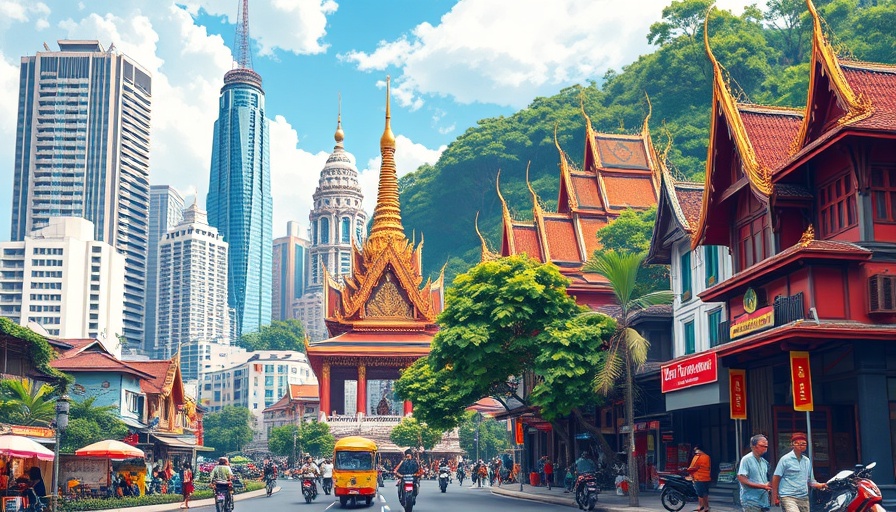
Has Thailand Truly Changed for the Worse? Dissecting the Transformation
Thailand, a beloved paradise known for its rich culture and stunning landscapes, faces growing debate among expats and visitors. Has the country deteriorated over the years, or is this merely a perception fueled by changing dynamics? Over the past decade, transformations driven by geopolitical factors and evolving tourism demographics have reshaped the Thai experience for both locals and foreign newcomers.
Understanding the Shifts in Tourist Demographics
The transformation of Thailand's tourism landscape is remarkable. The influx of diverse nationalities, particularly following geopolitical events like the Russia-Ukraine war, has drastically changed the fabric of Indonesian tourism.
In Phuket, a refuge for many Russian expatriates seeking peace from conscription and conflict, cultural exchanges have intensified. However, they also come with social challenges, highlighting the complexities of integration in a community. There are reported tensions between locals and new arrivals, with certain individuals allegedly resorting to unlawful activities, threatening the socioeconomic balance that has long defined Thailand.
Chinese Tourists: Balancing Wealth and Security
The rise of the Chinese middle class presents another significant reality. Enjoying new levels of wealth, these tourists are flocking to Thailand. The appeal—affordable living and a slower pace—makes it an attractive alternative largely sought after by young professionals yearning for relief from their high-pressure environments.
Yet, alongside this rise in tourism has come an increase in criminal exploitation. Wealthy Chinese nationals have become targets for organized crime, with alarming reports of kidnappings surfacing. Such events sow unease within the community and raise important questions about the security measures in place for expats and foreign tourists alike.
British Expats: A Growing Concern
While the focus is on Russian and Chinese nationals, there is a sobering reality concerning British expatriates. Reports of alcohol-fueled violence and other antisocial behaviors taint the image of British tourists in popular locales. Concerns are burgeoning among locals who see these negative behaviors affecting their day-to-day lives.
A Broader Global Context
Thailand's challenges reflect broader global trends seen in many countries. The ebb and flow of cultural dynamics due to migration, combined with shifting economic conditions, are creating a multifaceted situation that calls for nuanced understanding. Moreover, the nostalgic essence of Thailand remains—hidden perhaps, but still accessible if you know where to look.
Comprehending the Reality: What Lies Ahead?
As Thailand continues to evolve, foreign nationals, especially retirees and digital nomads looking to relocate, must be equipped with proper knowledge and awareness. Understanding the socio-economic landscapes and embracing cultural exchanges can foster a more harmonious community, reducing tensions between locals and newcomers.
However, it is crucial for these expatriates and tourists to stay informed and vigilant about potential risks. Knowing where to seek safe communities and understanding local laws help in navigating this vibrant yet complex territory.
Concluding Thoughts: Is Thailand Still the Paradise It Once Was?
As we probe further into the question of whether Thailand has changed for the worse, the answer remains subjective. Nostalgia may cloud perceptions, but change is a constant in any society. Thailand is no exception. The heart of this nation beats on, and preserving its rich culture and sense of community could very well be a collective effort.
For anyone considering Thailand as a new chapter in life—either for retirement or as a digital nomad—the need for understanding the evolving dynamics has never been more pressing. Follow local news and engage with communities for the best experiences possible. Thailand's charm, while evolving, awaits those willing to explore it in all its new dimensions.
 Add Row
Add Row  Add
Add 




 Add Row
Add Row  Add
Add 

Write A Comment